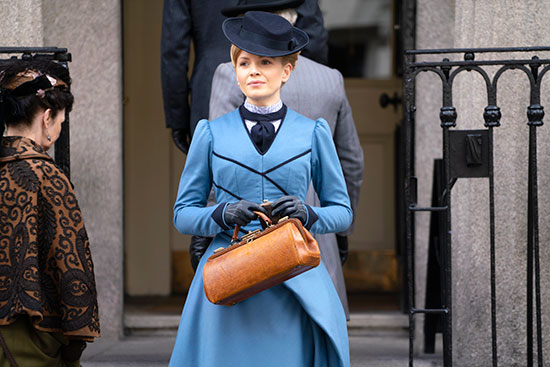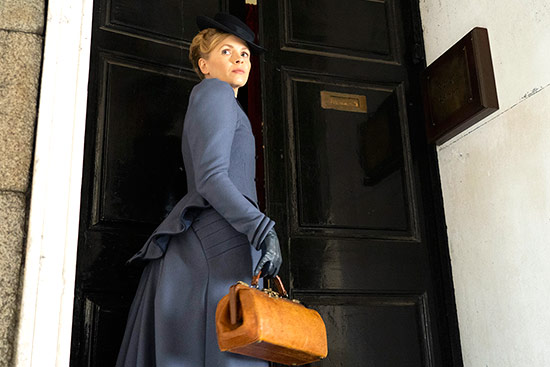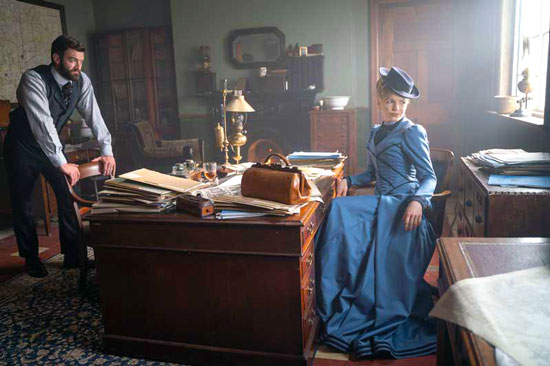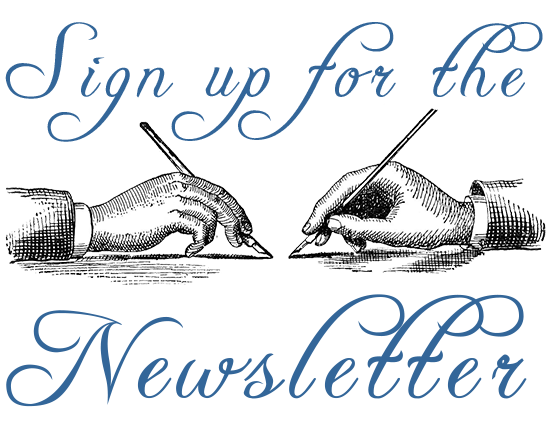Last Updated on June 7, 2023
If a period drama captures your heart and imagination, it probably doesn’t matter all that much if it takes historical liberties. But it’s always edifying to find out what is historically true and what isn’t.

To help keep this site running: Willow and Thatch may receive a commission when you click on any of the links on our site and make a purchase after doing so.
We loved the leading lady in “Miss Scarlet and the Duke,” and her resolve to make her own way in a man’s world, but we wondered if her circa 1882 character was based more on fiction than fact.
With that in mind, we asked PBS’ Jackie Bruleigh to do a little investigative work of her own, to find out if female private detectives actually existed in the Victorian era.
“Miss Scarlet and the Duke” is AVAILABLE to STREAM
Like many fans of period dramas, I’m always partial to a show that weaves in historically relevant plot points. What can I say: I love an Easter egg, especially one that gives me an excuse to dive down a rabbit-hole and learn something new.
So, you can imagine that “Miss Scarlet and The Duke,” one of the latest dramas from MASTERPIECE, was an absolute dream come true for this inveterate nerd. The first season featured a famous maritime disaster (the wreck of the Princess Alice), the Marsh test to detect arsenic, and some explosively fun facts about turpentine — and that was only in the first episode!
The show did, however, leave me with one burning historical question: could a woman like Eliza Scarlet actually support herself as a private detective in the late 1800s?

The answer, I’m delighted to say, is a resounding “yes.”
Most fans of this genre probably suspect (and they’d be correct!) that private detectives were in high demand in the UK at the end of the nineteenth century. Why? Because in 1858, divorce became legal for the average Briton, but only in cases where the wronged party could prove adultery.
And the best way to get this unsavory proof? Hire a detective.
It turns out that women were particularly sought after for this work, because they were able to take on household jobs which put them in the right place at the right time for gossip.
By the late 1800s, women detectives were common enough to find themselves competing with each other for business, and records show that these women worked with Scotland Yard — much like our heroine — in an official capacity. This is notable because women were not hired by the Metropolitan Police as fully fledged police officers until 1915.
But what were these early Lady Detectives like? Kate Easton, one of the first women to make her name in the field, had a history as a performer, and was thus adept at disguise. She traded on her hard work and willingness to take on dangerous assignments, which were seen as masculine traits at the time. Easton’s direct competition?
Maud West, a globe-trotting detective who opened up shop in 1905 and made a name for herself with savvy public relations. West, like Eliza Scarlet, was featured in dramatic newspaper stories — the main difference being that she penned these (probably slightly embellished) stories herself.
In the United States, women were working as detectives even earlier than their British counterparts, with Kate Warne joining the Pinkerton Detective Agency in 1856. Much like Eliza, Warne took to detective work to support her family.
While the agency was at first skeptical about hiring a woman, Warne convinced them that she’d offer a unique perspective, and she was right. Warne was so successful that a few years after being hired she was put in charge of an all-female branch of the Pinkertons.
She also played a critical role in identifying and thwarting an assassination attempt on President Abraham Lincoln in 1861, and laid the groundwork for other women to enter her field.
Another early American detective, Isabella Goodwin, was the first woman police detective in New York City. She officially got the title in 1910, but evidence suggests that she was helping to solve crimes for several years beforehand. Goodwin was known for her undercover work, and probably would drive William Wellington nuts.
Goodwin famously collaborated with another female detective, Frances Benzecry, who was hired by private medical societies to track and shut down fake doctors, which Benzecry accomplished by pretending to submit to these “medical professionals” for treatment.

The verdict? Yes, Eliza Scarlet is indeed a historically accurate character.
Sure, she’s a few years ahead of the lady detective boom in the UK, but who can argue when she’s just so much fun to watch?
If the show is renewed for a second season, we can only hope that we’ll get to see Eliza take on more of the undercover work her real-life peers were known for (how funny would it be to see her try to masquerade as a cook?) or even interact with some of these historical women detectives.
In the meantime, I’m off to see if I can’t find a biography on one of these sleuthing gals to tide me over.
“Miss Scarlet and the Duke” is AVAILABLE to STREAM
Jackie Bruleigh is a writer and content producer with an abiding love for the weirder side of the internet. A lifelong drama fan, she produces and co-hosts WGBH’s Drama After Dark, when she’s not inhaling every cozy, tea-logged program the United Kingdom has to offer.
If you enjoyed this post, wander over to The Period Films List. You’ll also want to see our deep-dive into Miss Scarlet’s Blue Dress.


Nina Lundstedt
August 4, 2021 at 12:45 am (3 years ago)Oh, I wish I could watch Miss Scarlet and The Duke! Seems really great, but I don’t think you can watch it in Sweden, sadly. I’m hoping streaming services such as HBO Nordic, viaplay, cmore or Netflix Nordic will eventually pick it up. Fingers crossed! I’m intrigued by the whole story!!
Susan Olson
March 21, 2021 at 12:32 pm (3 years ago)There is a short book about Mrs. Goodwin on Goodreads called The Fearless Mrs. Goodwin, by Elizabeth Mitchell.
Marshall Law
March 20, 2021 at 3:59 pm (3 years ago)Yes, PInkerton hired women early on and was even using women agents during the Civil War. I haven’t read anything about how they were treated or paid, with respect to the male agents. But Pinkerton was infamous for treating his wife and daughter like slaves.